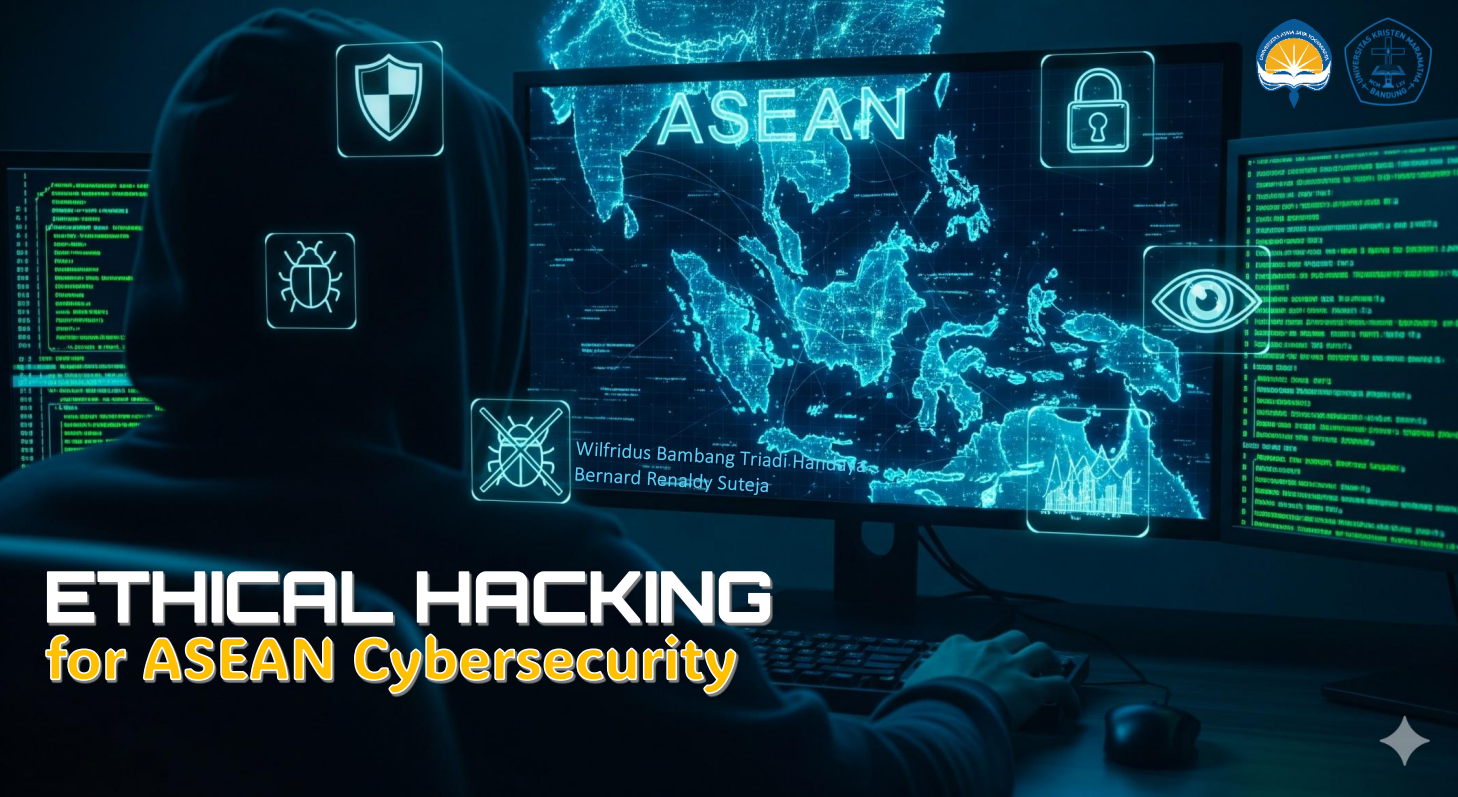Introduction
In today's interconnected world, where digital threats are constantly evolving, safeguarding our cyber infrastructure is paramount. This course, "Ethical Hacking for ASEAN Cybersecurity," aims to equip you with the essential knowledge and practical skills to understand, identify, and mitigate cyber vulnerabilities, specifically tailored to enhance cyber resilience within the ASEAN region. Through this program, you will gain insights into the mindset of an ethical hacker and learn to proactively protect digital assets.
As digital transformation accelerates across ASEAN, the need for skilled cybersecurity professionals has never been more critical. Industries, governments, and individuals alike face increasing risks from sophisticated cyberattacks. This course provides you with the crucial competencies to address these challenges, preparing you for vital roles in cybersecurity, IT, and risk management. Students will understand security standards as users of digital technology and maintain information security for personal, corporate, and public data, hoping to minimize the risk of attacks/data theft. In addition, they will understand the technical aspects and methodologies of information security attacks carried out by hackers, learn prevention solutions, and study the ethics of implementing security in accordance with globally agreed standards. By understanding ethical hacking methodologies, you will be able to strengthen digital defenses, contribute to national cyber resilience, and foster a safer digital environment across the region.
Learning Goals
This course aims to empower students to proactively enhance cyber resilience by applying ethical hacking methodologies and adhering to global security standards. Upon completion, learners will be able to identify, analyze, and mitigate diverse cyber threats, ranging from fundamental system vulnerabilities to advanced web and mobile attacks, thereby strengthening information security across personal, corporate, and public domains with a high degree of proficiency, ultimately contributing to a more secure digital landscape in the ASEAN region.
Course Operation Period
Period : September 8, 2025 ~ December 8, 2025
Course Level
Introductory
Prerequisites
To successfully participate in the "Ethical Hacking for ASEAN Cybersecurity" course, a foundational understanding of computer networks and operating systems is highly recommended. Familiarity with basic cybersecurity concepts, though not strictly required, will be beneficial.
Evaluation Standard
Evaluation Standard
| Item |
Title |
Score(Rate) |
Implementing Week |
Method |
Remarks |
| Midterm |
Intermediate Competency |
50% |
Oct 20 - 26, 2025 |
Online Test |
|
| Final Exam |
High Competency |
50% |
Dec 1 - 8, 2025 |
Online Test |
|
| Total |
100% |
|
Summary of Curriculum
Summary of Curriculum
| Topics |
Sub Topics |
Remarks |
| Chapter 1: Information Security Fundamentals & Ethical Hacking |
-
Introduction to Cybersecurity Concepts
- Security Assessment and Protection Strategies
|
|
| Chapter 2: Information Gathering Techniques & Reconnaissance |
- Concept and goal of footprinting
- Identify and implement countermeasures
|
|
| Chapter 3: Scanning & Enumeration |
- Understanding network discovery and scanning methodologies
- Deep dive into enumeration methods and advanced techniques
|
|
| Chapter 4: System Hacking |
- Understanding Authentication Weaknesses to Build Stronger Defenses
- Identifying and Mitigating System Security Weaknesses
|
|
| Midterm Exam |
|
| Chapter 5: Network & Wireless-level Attacks |
- Understanding core wireless technologies & their security implications
- Analysis of wireless attack vectors & defensive strategies
|
|
| Chapter 6: Web Application Attacks |
- Foundation for comprehensive web application security assessment
- Advanced testing & defensive strategies
|
|
| Chapter 7: Mobile Attacks |
- Understanding mobile security landscape & platform vulnerabilities
- Advanced assessment & management strategies
|
|
| Chapter 8: Social Engineering Methods |
- Understanding psychology exploitation in cyberattacks
- Implement defense strategies
|
|
| Final Exam |
|
Textbook & References
- Aligning Security Operations with the MITRE ATT&CK Framework, Packt, 2023
- Beginning Ethical Hacking with Kali Linux_ Computational Techniques for Resolving Security Issues, Apress, 2018
- Mastering Linux Security and Hardening (3rd Edition), Packt, 2023
- Ethical Hacking Essentials (EHE) v1, EC-Council, 2022
- Network Defender Essentials (NDE) v1, EC-Council, 2022
- Certified Ethical Hacker (CEH) v12, EC-Council, 2022
Instructor Information
- Wilfridus Bambang Triadi Handaya, CND, CHFI, CEH, CEI
- Atma Jaya University Yogyakarta
- Computer Science, System Administrator and Cybersecurity
- wilfridus.handaya@uajy.ac.id
- Innovator in integrating industry-aligned cybersecurity practices into academic curricula. He applies a hands-on teaching methodology, utilizing cloud-based virtual labs (AWS, Proxmox) and enterprise-grade tools such as Ansible and SIEM/Wazuh, to transform theoretical concepts into real-world scenario simulations like incident response and vulnerability assessment. Extensive experience includes architecting secure e-learning environments at various universities, demonstrating his commitment to resilient digital infrastructure. As an educator, not only teaches core cybersecurity subjects but also designs capstone projects that simulate SOC operations and forensic investigations, consistently bridging the gap between industry and academia.
- Bernard Renaldy Suteja
- Maranatha Christian University
- Information Technology
- bernard.rs@it.maranatha.edu
- A dynamic professional educator dedicated to shaping the future of technology through innovative learning materials and cutting-edge research. Consistently pushes boundaries as a researcher, exploring and developing in diverse technological fields to stay ahead of evolving trends.
Teaching Assistant Information
- Helen Anjelica Sianipar
- Maranatha Christian University
- Educational Technology
- helenanjelica789@gmail.com
- An experienced Instructional Designer in the EduTech sector, specializing in Learning Management Systems (LMS), who designs and implements innovative and effective digital learning solutions. She focus on structuring engaging course content, optimizing LMS platform functionalities, and leveraging the latest technology to achieve measurable learning outcomes.










